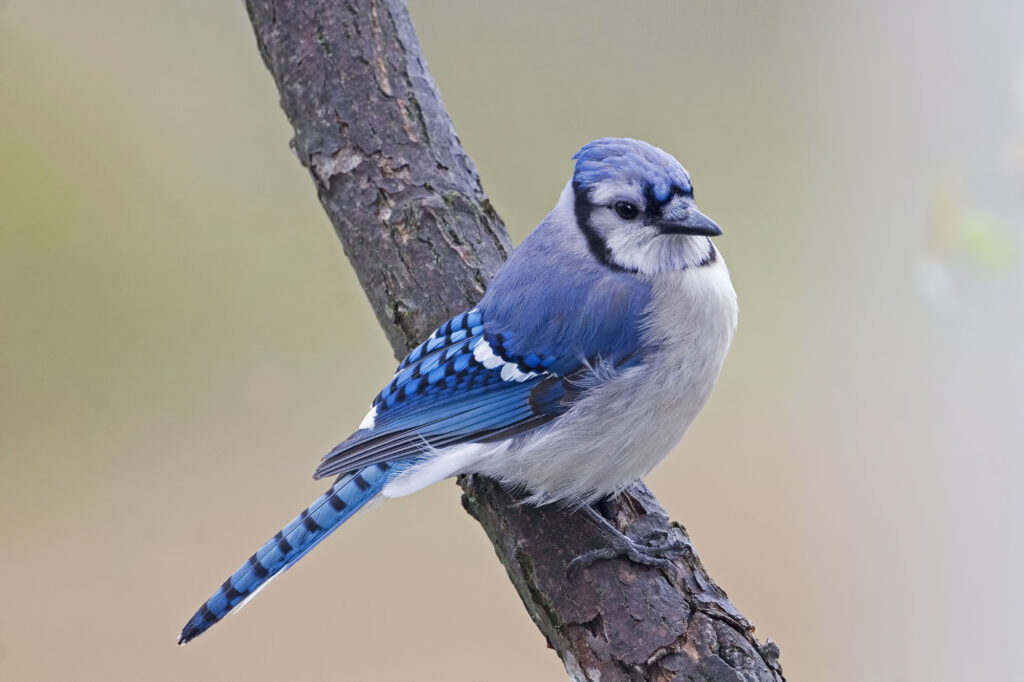When it comes to smaller birds, hawks are often their worst nightmare. So when posed the question: do hawks eat blue jays, you may be inclined to offer up a fast yes. The true answer, however, is a bit more complicated.
Hawks are predatory birds, but so are blue jays. And even though hawks, which are often large, may successfully prey upon them, blue jays don’t usually go down without a fight.
Here’s a few fun facts on the interesting relationship between hawks and blue jays.
How Are Blue Jays Related To Hawks
Blue Jays and hawks are both birds of prey, meaning that they hunt and eat other animals. Both groups also share some physical similarities, such as sharp talons and beaks that are used for tearing meat.
However, there are several key differences between these two bird groups. Typically, hawks are larger than blue jays, with a wingspan that can range from three to eight feet. They also have long, narrow tails that help them to navigate while flying at high speeds. In contrast, blue jays are smaller birds with shorter tails.
Their wingspans usually fall between one and a half to two and a half feet. Blue jays also have a crest of feathers on their head, which they can raise or lower depending on their mood.
Although blue jays and hawks share some similarities, they are still quite different birds.
Do Blue Jays Scare Off Hawks?
Gardeners often use scarecrows to keep birds from eating their crops, but does this work? When it comes to scaring off birds of prey, the jury is still out.
Some studies have shown that small birds will attempt to chase away hawks and other predators, while other research suggests that these interactions have little effect on the hunting success of raptors.
However, there is some evidence to suggest that blue jays may be particularly effective at deterring hawks. One study found that blue jays were more likely than other species to mob predators and that hawks were less successful in hunting areas where blue jays were plentiful.
While more research is needed to confirm these findings, it seems that blue jays may play an important role in keeping gardens safe from hungry predators.
Why Do Blue Jays Mess With Hawks?
Blue jays are notorious for their aggressive behavior, especially when it comes to hawks. There are a few reasons why blue jays would go out of their way to harass a hawk.
First, blue jays are known to be protective of their young. If a hawk is seen in the vicinity of a blue jay nest, the blue jays will do everything they can to drive the hawk away.
This includes dive-bombing the hawk and making loud noises. Second, blue jays are also known to be territorial. If a hawk invades a blue jay’s territory, the blue jays will again try to chase the hawk away.
Finally, blue jays may simply be acting on instinct. In the wild, hawks are predators of blue jays.
As such, the instinct to flee from hawks may be so strong in blue jays that even when there is no real danger, they will still try to chase away hawks. Whatever the reason, it is clear that blue jays view hawks as a threat and will go out of their way to harass them.
Do Hawks Eat Baby Blue Jays?
Hawks are predators, and they will eat just about anything they can get their talons on, including baby blue jays. While hawks typically hunt for small mammals, reptiles, and other birds, they are not above preying on young blue jays.
Baby blue jays are especially vulnerable to attack because they are not yet able to fly. This means that they are easy targets for a hungry hawk. If a hawk does manage to catch a baby blue jay, it will kill the bird by either crushing its skull or puncturing its brain with its beak.
The hawk will then tear the blue jay apart and eat it. While it may seem gruesome, this is simply the natural order of things. Hawks are designed to hunt and kill prey, and baby blue jays are part of their diet.
Do Hawks Eat Blue Jay Eggs?
Hawks are predators, which means they rely on other animals for food. While they will eat just about anything they can catch, hawks typically prefer to hunt smaller prey, such as rodents or birds. Blue jays are a type of bird that is often on the menu for hawks.
Blue jay eggs are a favorite food of Cooper’s hawks, a type of hawk that is found across North America. Cooper’s hawks are known for their quick and agile hunting style. They will often perch in a tree and wait for a blue jay to fly close by before swooping in for the kill.
While Cooper’s hawks are the most common type of hawk to eat blue jay eggs, they are not the only ones. Sharp-shinned hawks, another type of hawk found in North America, will also eat blue jay eggs when given the opportunity.
Hawks typically eat blue jay eggs during the spring and summer months, when blue jays are nesting and laying eggs. While it may seem like a cruel cycle, predation is a natural part of the food chain and helps to keep populations of both predators and prey in check.
Conclusion
Do hawks eat blue jays? Yes, hawks are predators and will eat just about anything they can catch, including blue jays. However, blue jays aren’t always the quickest, easiest meal for a hawk, which may make them less appealing.
Blue jays are aggressive birds, known for being extremely territorial over their space and young, and they’ll often implore every weapon in their arsenal to defend themselves from hawks.

